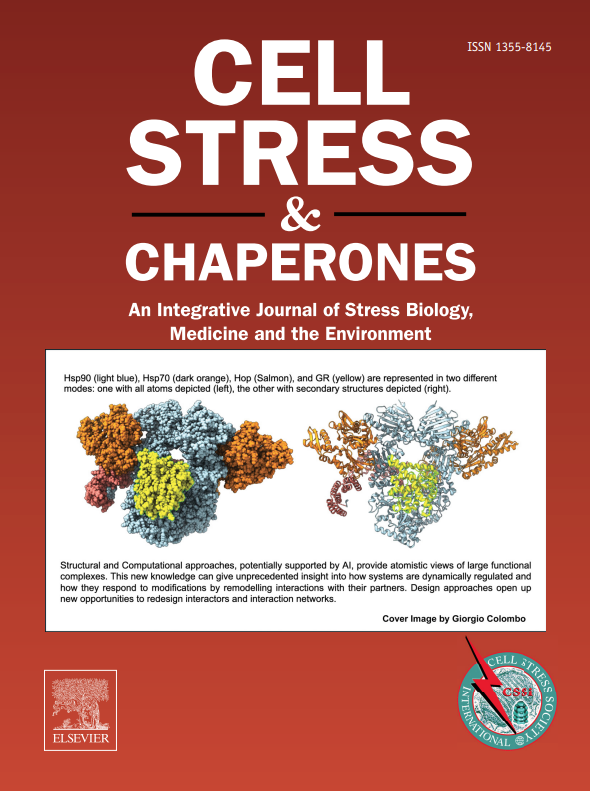定量磷酸化蛋白质组和蛋白质组分析强调了在克氏锥虫营养应激过程中磷酸化事件的影响:体外新陈代谢的初始时刻。
IF 3.3
3区 生物学
Q3 CELL BIOLOGY
引用次数: 0
摘要
磷酸化是细胞信号传导过程中的一个重要事件,由激酶和磷酸酶调节。在南美锥虫病的病原体克氏锥虫中,约有 2% 的蛋白编码基因为蛋白激酶编码。这种寄生虫的生命周期分为四个不同的发育阶段。在无脊椎动物载体的中肠中,表皮母细胞分化成元胰母细胞,这一过程被称为元胰母细胞发生。将寄生虫置于营养压力(NS)下可在体外重现这一过程。为了有助于阐明诱发元胞发生的机制,我们采用了超级-SILAC(细胞培养中氨基酸的超稳定同位素标记)和 LC-MS/MS 分析 NS 过程中的不同点。通过分析,我们确定了 4205 个蛋白质组和 3643 个磷酸肽,以及 4846 个磷酸化位点的位置。有几个磷酸化位点被认为在 NS 期间发生了改变,这些位点存在于与脂肪酸合成和蛋白质表达调控等各种功能相关的蛋白质中,从而加强了磷酸化和信号事件对寄生虫的重要性。这些被调节的位点可能是新陈代谢的触发器。本文章由计算机程序翻译,如有差异,请以英文原文为准。
Quantitative phosphoproteome and proteome analyses emphasize the influence of phosphorylation events during the nutritional stress of Trypanosoma cruzi: the initial moments of in vitro metacyclogenesis
Phosphorylation is an important event in cell signaling that is modulated by kinases and phosphatases. In Trypanosoma cruzi, the etiological agent of Chagas disease, approximately 2% of the protein-coding genes encode for protein kinases. This parasite has a heteroxenic life cycle with four different development stages. In the midgut of invertebrate vector, epimastigotes differentiate into metacyclic trypomastigotes in a process known as metacyclogenesis. This process can be reproduced in vitro by submitting parasites to nutritional stress (NS). Aiming to contribute to the elucidation of mechanisms that trigger metacyclogenesis, we applied super-SILAC (super-stable isotope labeling by amino acids in cell culture) and LC-MS/MS to analyze different points during NS. This analysis resulted in the identification of 4205 protein groups and 3643 phosphopeptides with the location of 4846 phosphorylation sites. Several phosphosites were considered modulated along NS and are present in proteins associated with various functions, such as fatty acid synthesis and the regulation of protein expression, reinforcing the importance of phosphorylation and signaling events to the parasite. These modulated sites may be triggers of metacyclogenesis.
求助全文
通过发布文献求助,成功后即可免费获取论文全文。
去求助
来源期刊

Cell Stress & Chaperones
生物-细胞生物学
CiteScore
7.60
自引率
2.60%
发文量
59
审稿时长
6-12 weeks
期刊介绍:
Cell Stress and Chaperones is an integrative journal that bridges the gap between laboratory model systems and natural populations. The journal captures the eclectic spirit of the cellular stress response field in a single, concentrated source of current information. Major emphasis is placed on the effects of climate change on individual species in the natural environment and their capacity to adapt. This emphasis expands our focus on stress biology and medicine by linking climate change effects to research on cellular stress responses of animals, micro-organisms and plants.
 求助内容:
求助内容: 应助结果提醒方式:
应助结果提醒方式:


